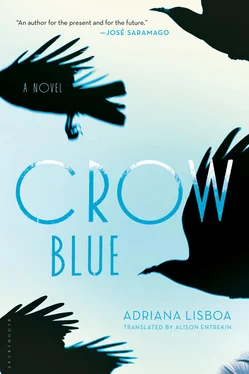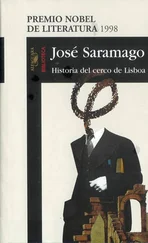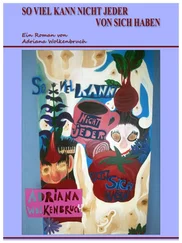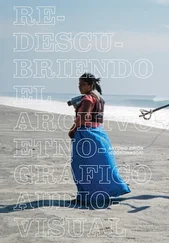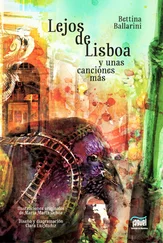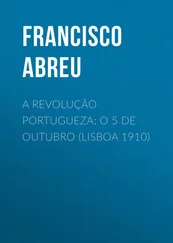During Operation Fish I, the residents of São João do Araguaia talked to the army about a group of people from São Paulo who were living in Faveira.
The investigators wore plain clothes and were under orders to keep that first phase of the operation absolutely secret. They left with a few names, a few suspects and a few certainties.
One of the certainties was that the enemy was better equipped for confrontation than they had thought, and that reinforcements were required.
Operation Fish II would come next. To watch, investigate, arrest, interrogate.
They conducted searches in Faveira and seized ammunition and a boat. They staked out a point on the Trans-Amazonian Highway where they thought they might surprise a certain suspect by the name of Joca. Who had bought land in Faveira and started receiving people whom he introduced to the locals as members of his family: a certain Dona Maria, a certain Cid, a certain Mário, a certain Luiz. A man of Japanese descent, a blonde woman. A couple called Beto and Regina.
This Joca had a large, diverse family, as they had discovered in Operation Fish I.
The military considered the hypothesis that they were inoffensive hippies, disenchanted with urban life, only to quickly discard it. They suspected that Joca was an experienced guerrilla from the National Liberation Action by the name of João Alberto Capiberibe.
And it was indeed him. But they never imagined that Dona Maria was Elza Monerat, a veteran communist who was almost sixty years old. Or that Mário and Cid were Maurício Grabois and João Amazonas, of the Brazilian Communist Party’s central committee and former federal deputies.
The agents on the Trans-Amazonian Highway stakeout waited for Joca to appear. He no longer lived in Faveira, but according to locals he visited once a month, took care of whatever he needed to and then returned to an unknown place in the middle of the forest ( The forest is our second mother! ), passing along the Trans-Amazonian.
The agents waited for five days. In vain. You see, information also traveled in the opposite direction.
Manuela’s letter to Chico, a piece of paper that later took up residence in the wooden El Coto de Rioja wine crate, at the back of a wardrobe in a suburb of Denver, was written before all this.
Manuela was bedridden with malaria and thought she was going to die. She ached all over, from head to foot. She vomited. Shook with fever. Other comrades had already been through it and worse things and were still there, but she felt so bad that she didn’t think she’d make it. The suffering in her own body seemed more complex and specific than in other people’s bodies.
In those parts it was common for people to die of malaria, yellow fever, leishmaniasis. Comrade Regina, who had been in Faveira a year earlier, had had brucellosis, anemia, fallen pregnant by her boyfriend Beto, and had an abortion as per the Party’s orientation. The abortion wasn’t carried out properly and she was finally granted leave to go get treatment elsewhere.
The fetus was still in her belly. She never returned.
Chico was working in the forest when bedridden Manuela thought she was going to die. He had been away for over a week.
You’re not going to die, said Comrade Inês.
But her body no longer seemed to have the will to live. In her letter to Chico, Manuela wrote, with revolutionary flair: I admire you so much. Your strength, your ability. If I don’t make it, please find a way to notify my parents in Rio de Janeiro. Tell them that I never regretted coming here. Dying sick in a bed isn’t the same as dying in a war against the enemies of the people, it is true, but even so I don’t regret it. I also want to say that I really like you. I wish life were different. You know. Really different. Completely different.
Chico knew. When he returned from the forest and read the letter from Manuela, who was burning up with fever but recovered from the malaria and recovered again all the times she got sick, he already knew.
You might be willing to lay down your life for the Party and its ideals (you have to in order to be a part of the Guerrilla Forces, otherwise when you realize you aren’t it’s too late). But to lay down love, not necessarily.
The woodsman who had studied in China, maker of weapons, a communist since he was a teenager, the man with a boy’s face and firm arms who wasn’t afraid of anything, who even before going to the Araguaia had been unable to get a job anywhere because of his sullied record (against the homeland there are no rights), thought it was possible to have both. The Araguaia Guerrilla Forces and the girl who went by the codename Manuela, who thought she was going to die of malaria.
Come on, Manuela. You’re going to be fine.
A week later she was teaching again in the school created and run by the guerrillas, for children who had nothing, who only had what their families were able to take from the benevolence of the land and the rivers, the children of the squatters who feared the land-grabbers who were on the side of the power.
Brazil only remembered that infinite no man’s land when the no man’s land became a question of national security, in that era when Trans-Amazonian Highways came into being. But it wouldn’t solve its problems, not even in the next half-century.
One of the things that Manuela couldn’t have known when she was teaching those children was that in the future Bico do Papagaio would continue to be a poor region, abandoned by the government, and would be the setting for violent conflicts sparked by the coexistence of farmers, loggers, landless workers, prospectors, Indians, slave workers, gunmen and drug traffickers.
Years later, a police chief by the name of Hitler Mussolini would frequent the region, trying to deport Dominican friars fighting for the rights of local rural workers.
In that future, police officers would hold second jobs as security guards on big farms. Slave workers would labor under the watch of armed men and would sleep locked up in sheds. One adolescent girl rescued by investigators had no idea that she could be paid for her work. It hadn’t occurred to her. She was fourteen years old and had been working since she was five.
The Party didn’t want the guerrillas to have amorous dallyings. But what if they weren’t dallyings? Some comrades appeared to be celibate. Others were married. And others were indeed in relationships that had been born there, in the middle of the forest, as they practised shooting or first aid.
So, one day when Manuela went to cut wood in the forest, Chico went with her. To help.
Como é que você se chama? Quando é que você me ama? Onde é que eu vou lhe falar? Como é que você não me diz quando é que você me faz feliz? Onde é que vamos morar? (What is your name? When will you love me? Where will I talk to you? Why won’t you tell me when you are going to make me happy? Where are we going to live?)
Chico wasn’t going to sing the song, tone-deaf as he was, but he could think it, since thoughts don’t go off-key.
He could think it as he thought about Manuela. As he caught Manuela in a hug. Come here, girl. And she laughed. I thought I was going to die. How silly. (Who said “how silly,” him or her?) I really like you too. (This was definitely him.)
That dense forest that blocked everything, that even blocked the sunlight. Once Chico dreamed that he was entering the forest and it was pitch-black. He couldn’t see a thing. In the middle of the day. But the forest is our second mother ! And in the middle of the forest you can hug and kiss someone you like, someone you think you really like, a lot, and sing songs mentally so as not to run the risk of going off-key. And later you can even sing a few lines of the song out loud, despite your voice and tone deafness. Just a few lines. Remove your clothes and reveal a body that is weak and strong at the same time. Ugly and beautiful. Very thin. Times two. A lot of insect bites. Calluses. Scars. Warmth, desire. All of it. Then put your clothes back on, hoist the firewood onto your back and take it to where it needs to be taken. As if it were weapons. As if it were a wounded companion.
Читать дальше
